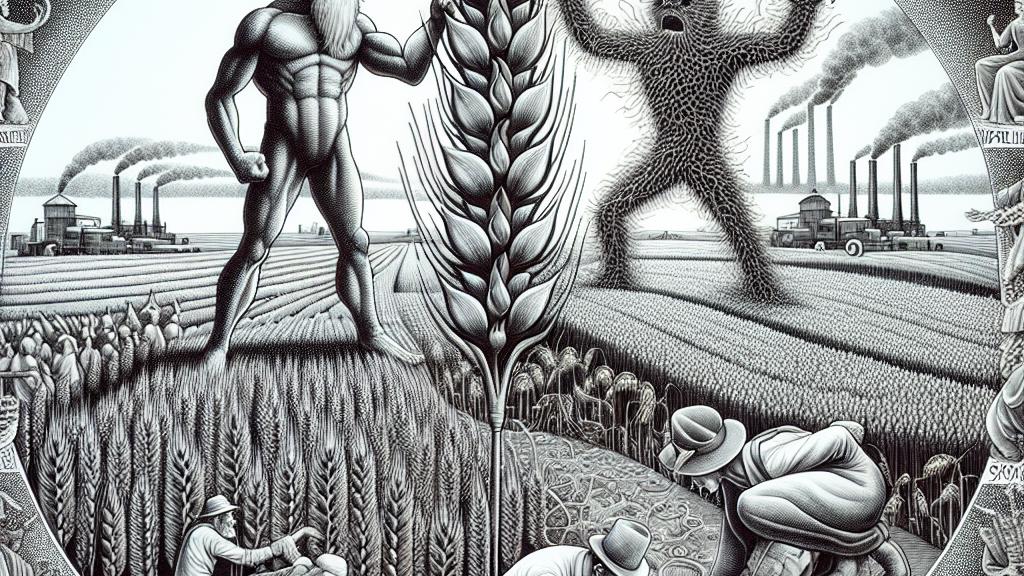Understanding Wheat Genes That Help Fight Plant Diseases
Overview
- Exciting advancements in wheat genetics are enhancing disease resistance.
- Utilizing these discoveries could significantly lower pesticide dependence.
- The interplay of gene pairs is transforming the future of wheat breeding.

The Fight Against Wheat Powdery Mildew
In an exciting discovery from China, scientists have identified a powerful gene pair—RXL and Pm5e—that works together to combat powdery mildew, a fungal menace that can reduce wheat yields by a staggering 10-40%. This isn't merely a scientific finding; it's a potential revolution in agriculture. Picture this: farmers growing wheat that naturally resists diseases without the need for heavy pesticide applications! The implications go beyond mere yield; such innovations pave the way for environmentally friendly farming practices, promoting healthier ecosystems and ultimately providing safer food for everyone.
Exploring the Role of NLR Gene Pairs
The teamwork between RXL and Pm5e offers a fascinating glimpse into the world of plant genetics. These genes are part of a wider group known as NLR (nucleotide-binding leucine-rich repeat) genes, which serve as defenders against invading pathogens. For instance, in the realm of rice, gene pairs like RGA4 and RGA5 showcase similar collaborative defense strategies. They act like an elite task force, detecting intruders and activating protective responses swiftly. This collaboration not only boosts disease resistance but also inspires innovative breeding strategies. By studying these genetic interactions further, scientists can create new wheat varieties that are resilient and robust, capable of thwarting multiple threats at once.
Broadening Resistance Against Multiple Diseases
However, the journey toward resilient wheat does not end with powdery mildew. Consider the Yr15 resistance gene; this remarkable gene provides powerful defense against yellow rust, a disease notorious for its ability to evolve rapidly. This reveals a compelling trend in agricultural science: the necessity for a diverse arsenal of resistance genes. Just like a strategic health plan that incorporates multiple treatment options, integrating various resistance genes can empower breeders to develop wheat varieties that can withstand not just one, but many diseases, such as stem rust and Fusarium head blight. Envision a future where wheat crops thrive with minimal impact from diseases—this not only strengthens food security but also supports sustainable agricultural practices. By focusing on resilience in the face of these challenges, we can cultivate a future that benefits both farmers and consumers, ensuring a stable food supply for generations to come.

Loading...